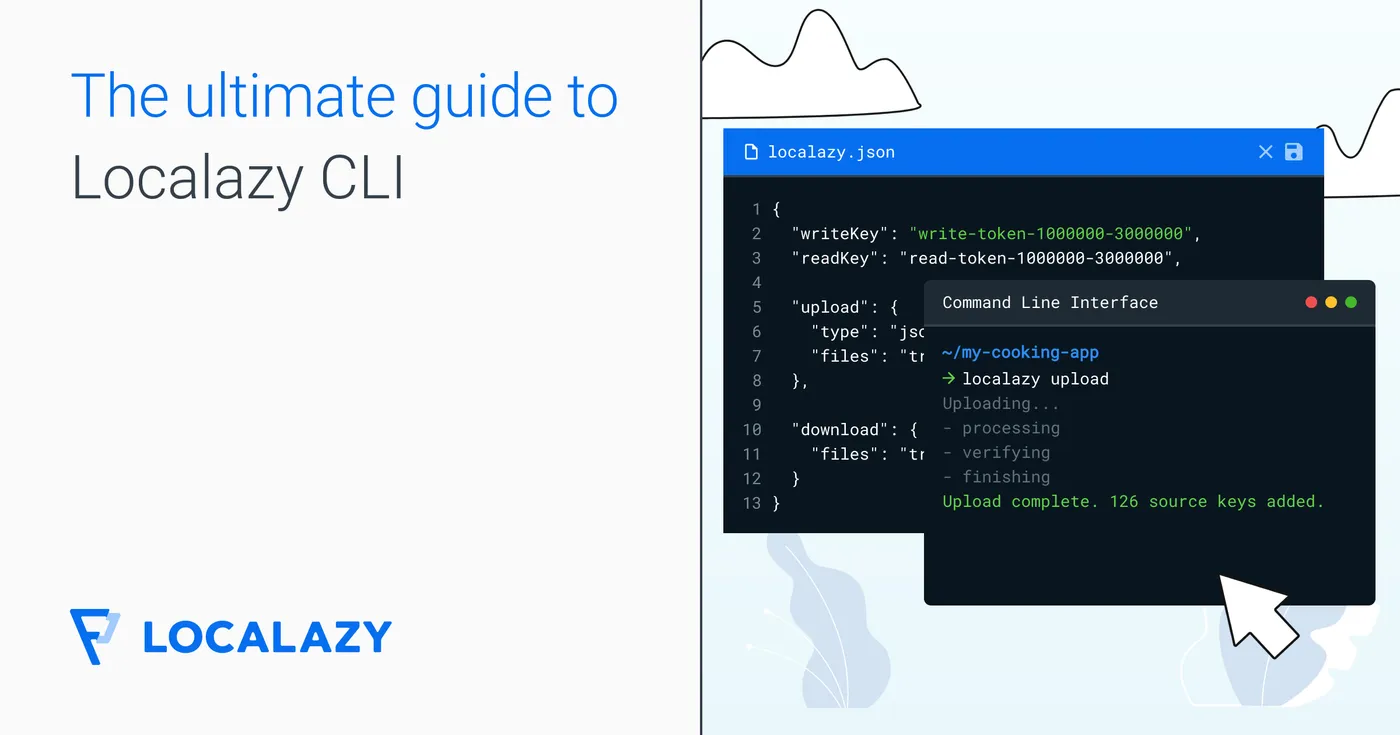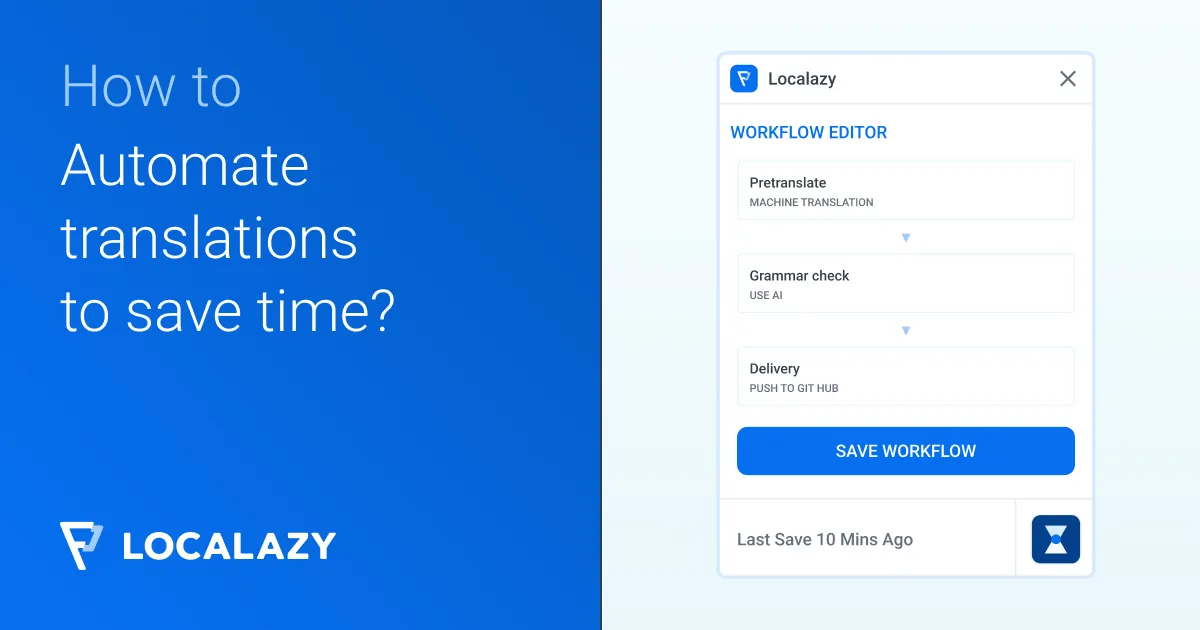As you can learn in Command-Line Options, it’s possible to provide additional parameters using the -p option.
Such parameters can be used the same way as any other parameter (${parameter_name}), but they are evaluated statically before the configuration JSON is parsed. Therefore, it’s possible to use them to alter the behavior signifficantly.
Dynamic Upload & Download #️⃣
E.g., you can re-use the same configuration to upload different sources:
{
"upload": {
"files": "${uploadPath}/src/locales/**/translations.json",
"path": "${uploadPath}",
// ...
}
}Now, you can just invoke our CLI like this:
localazy upload -p uploadPath:app
localazy upload -p uploadPath:library1
localazy upload -p uploadPath:library2
Similar approach can be applied to the download section to select on where to store the resulting files or how to filter them based on specific parameters.
In a way, using additional parameters like this is similar to using groups, but you don’t need to define the corresponding section beforehand.
Changing Parameters Dynamically #️⃣
From the latest CLI version (1.6.5+), it’s possible to define parameters as strings even for boolean and numberic ones allowing to use a construction like this:
{
"upload": {
"folder": "${folder}",
"deprecate": "${deprecate}",
"filterSource": "${filterSource}",
"features": ["${feature1}", "${feature2}"],
// ...
}
}Now, you can just invoke our CLI:
localazy upload -p folder:. -p deprecate:none -p filterSource:true -p feature1:filter_untranslated -p feature2:
Please note that empty items in features are filtered out and not evaluated allowing to use additional parameters in described way.
Whole JSON Blocks #️⃣
As additional parameters are evaluated before the JSON is parsed, you can use them for an ugly hacks like this one:
{
"upload": {
${json1}
"type": "json",
"files": "locales/*.json"
}
}Now, by invoking our CLI with the command below, you can provide a part of the configuration JSON dynamically.
localazy upload -p 'json1:"importAsNew": true,'
However, this approach means that the input configuration file is no longer a valid JSON.
Default Values #️⃣
To specify default value for the external parameter, use the ${paramName|Default value} format.
{
"download": {
"includeSourceLang": "${includeSourceLang|false}"
}
}You can invoke the CLI as localazy download to download translations only, or as localazy download -p includeSourceLang:true to download also the source language.



